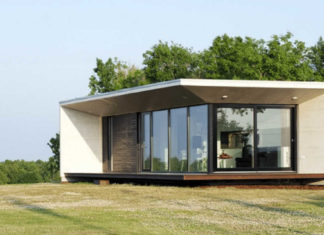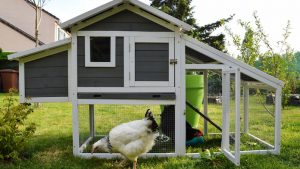
Who wouldn’t want to raise their own flock of chickens? They provide you with natural nutritious eggs every day and they’re also a joy to have around. However, raising your own chickens isn’t all fun and games. From choosing the right housing and supplies to regular feeding and taking care of hygiene, raising chickens needs a lot of work.
Today I will talk about different types of backyard chicken coops and how to pick the ideal one for your flock. These coops come in a variety of sizes, designs, and construction materials, so choosing the right one is a challenging task. I’ll help you tackle this challenge and give your chicks a home they’ll be happy with!
How to Choose the Right Material for a Chicken Coop?
Chicken coops come in many different types of materials and each of them has its own pros and cons. Your coop’s strength and durability, as well as the safety of your chickens, depend on the material you choose. Nowadays most chicken coops are made of steel, wood, or plastic:
- Steel: If you’re looking for a hygienic, strong, and durable housing solution, the all-steel chicken hutch is an ideal choice. These chicken homes are easy to assemble and come with a lifetime warranty. They protect your chicks from pests, predators, and bad weather. Metal coops are also eco-friendly, as they’re 100% recyclable.
- Wood: Wooden coops are also quite strong and reliable. They’re readily available and come in many different designs. However, unless the wood is properly treated, these coops are prone to rot and pest infestations. Compared to metal chicken coops, they’re also harder to clean.
- Plastic: These chicken coops aren’t suitable as permanent housing solutions because they get extremely hot inside on sunny days which is bad for your hens. However, they protect your chicks from predators and provide a safe enclosure where they can roam. PVC coops are lightweight, portable, and inexpensive.
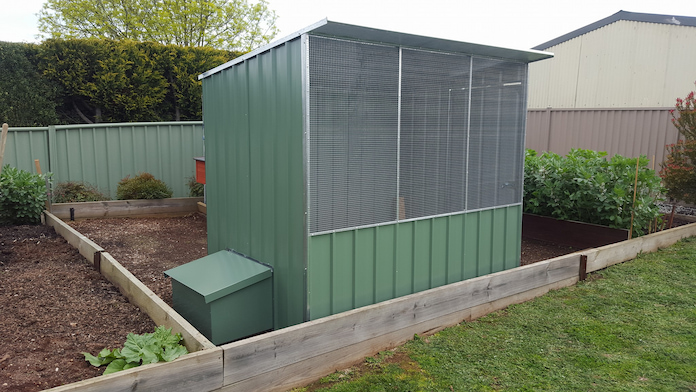
How Big Should It Be?
Your ideal chicken hutch size will depend on a few things, such as the number of hens you’re planning to keep, their breed, and whether or not they have access to the outside. If your chickens have outside access, experts advise that each chicken has around 0.5 to 1 square metre of room within the coop. This depends on the size of your birds. If they don’t have outside access, I recommend leaving even more room for each chicken.
Where Will You Place It?
Another important factor you should consider when deciding on a chicken coop is the location where you’re planning to place it. If you have an urban backyard meant for entertaining, it’s unwise to position your hens’ home right next to your patio.
If you plan to gather eggs every day, consider placing the coop close to your home. Check your local laws, though, since some mandate a certain distance between animal homes and human homes.
Check if there’s water and electricity available near your chicken coop. Hens drink a lot of water, so constantly carrying it to their coop gets tiresome. Electricity, on the other hand, helps you power heated waterers, automated door openers, and winter “lights-on” for improved egg production.
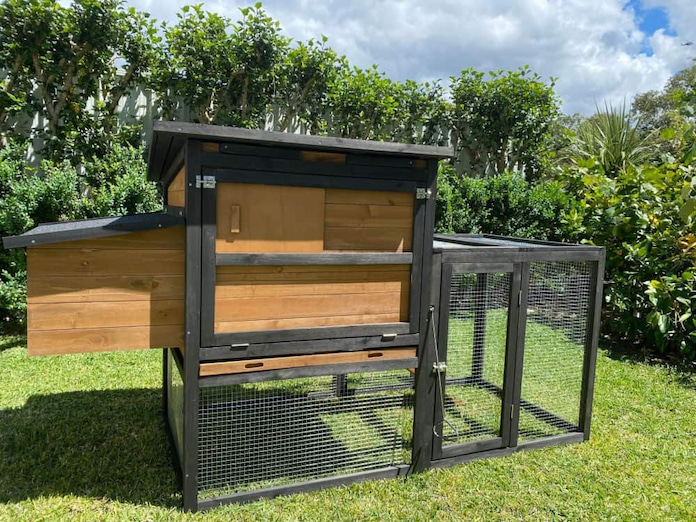
When choosing a location for your coop, make sure your hens have enough space for an outside run. Make use of available light, shade, and breezes so that your chicks aren’t too hot or too cold. In hot weather, you should position your chicken coop in a shaded location. However, when the weather is cold, your coop should be facing south so that it’s shielded from northern winds.
Human Access and Ventilation
You often need to enter the coop in order to clean it and tend to your hens. For this reason, it’s crucial to have easy access to it and enough room to work. Your coop should have a proper door and enough room to stand up inside.
Metal chicken coops are spacious enough for your hens to run around and for you to carry out your maintenance duties. They also include wide mesh panels that let light and air in.
Are Your Hens Protected from Predators?
Many predators view chickens as an excellent meal, and they will use whatever means necessary to get to them. This is why predator protection should be at the top of your priority list when choosing a chicken coop.
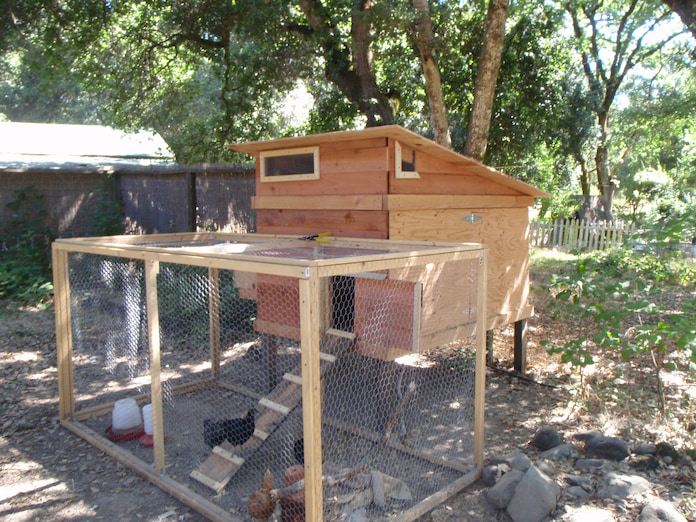
It’s incredible how easily a weasel can fit through a hole or how powerful and agile raccoons are. These common predators will swiftly obliterate your flock if they enter the coop.
Make sure that there are no coop openings so that no animal enters throughout the night. Cover any windows or vents with a sturdy piece of mesh or cloth. Additionally, make sure that you shut the hens’ little pop-hatch door tightly at night. Steel chicken coops are an excellent choice if you’re looking for a strong, durable, and secure option.
Bottom Line
Raising chickens is a fun and beneficial hobby, but it comes with certain responsibilities. One of them is picking a safe and practical chicken coop. These housing solutions come in all shapes, sizes, and materials, from plastic to metal, and all of them have certain pros and cons.















